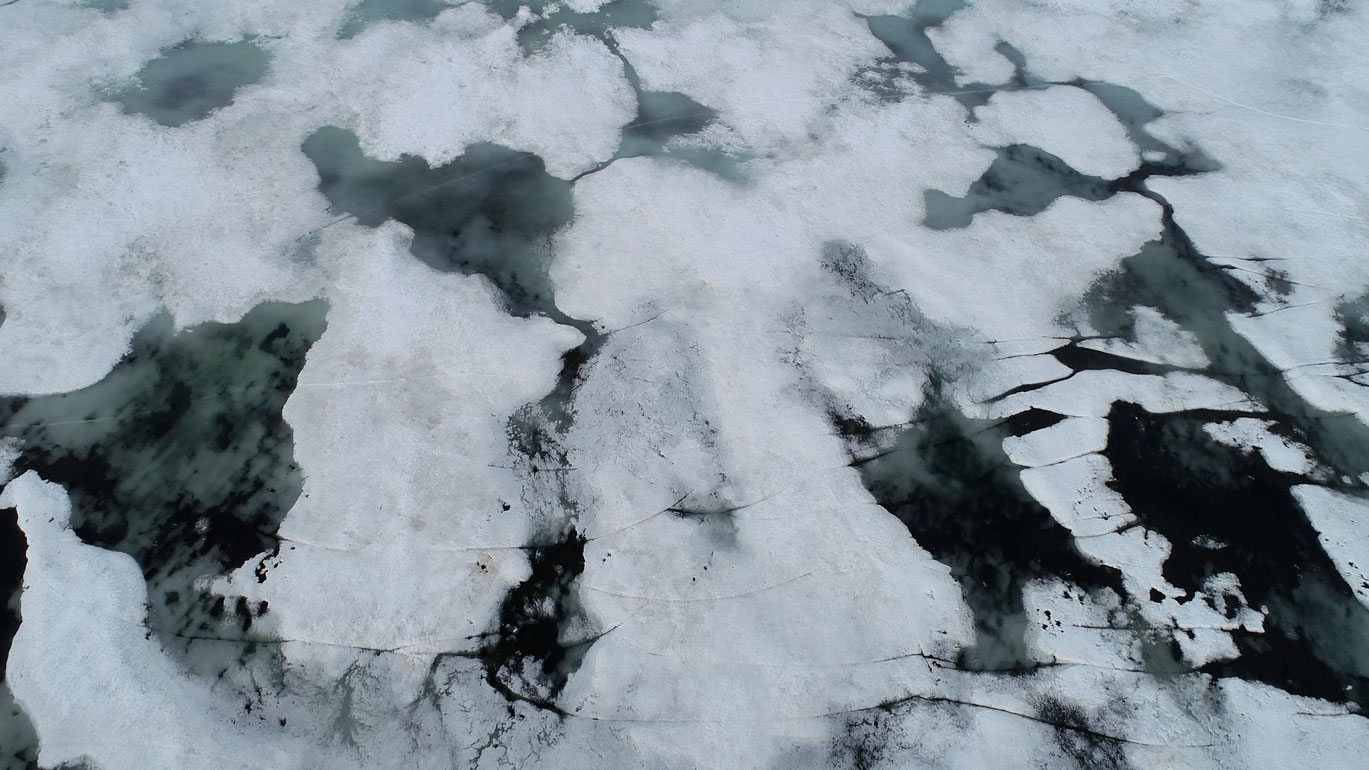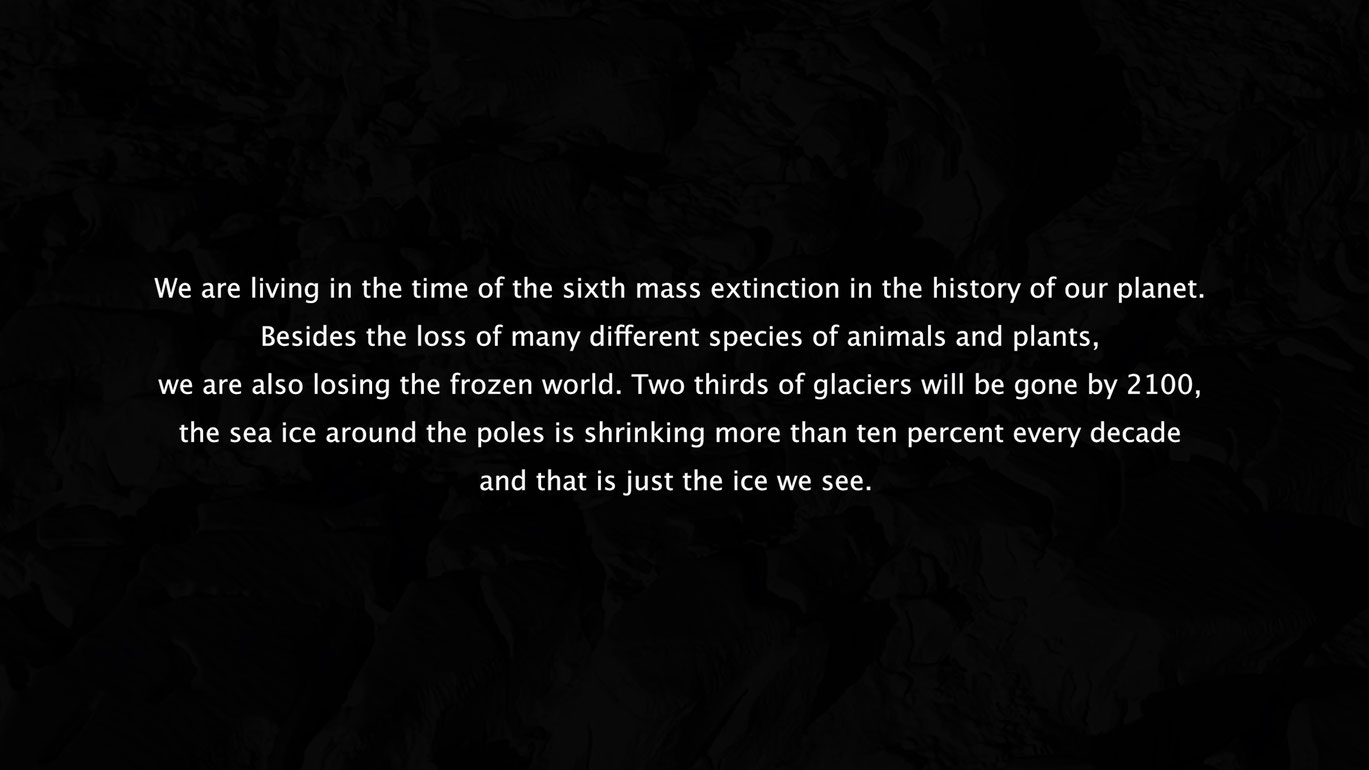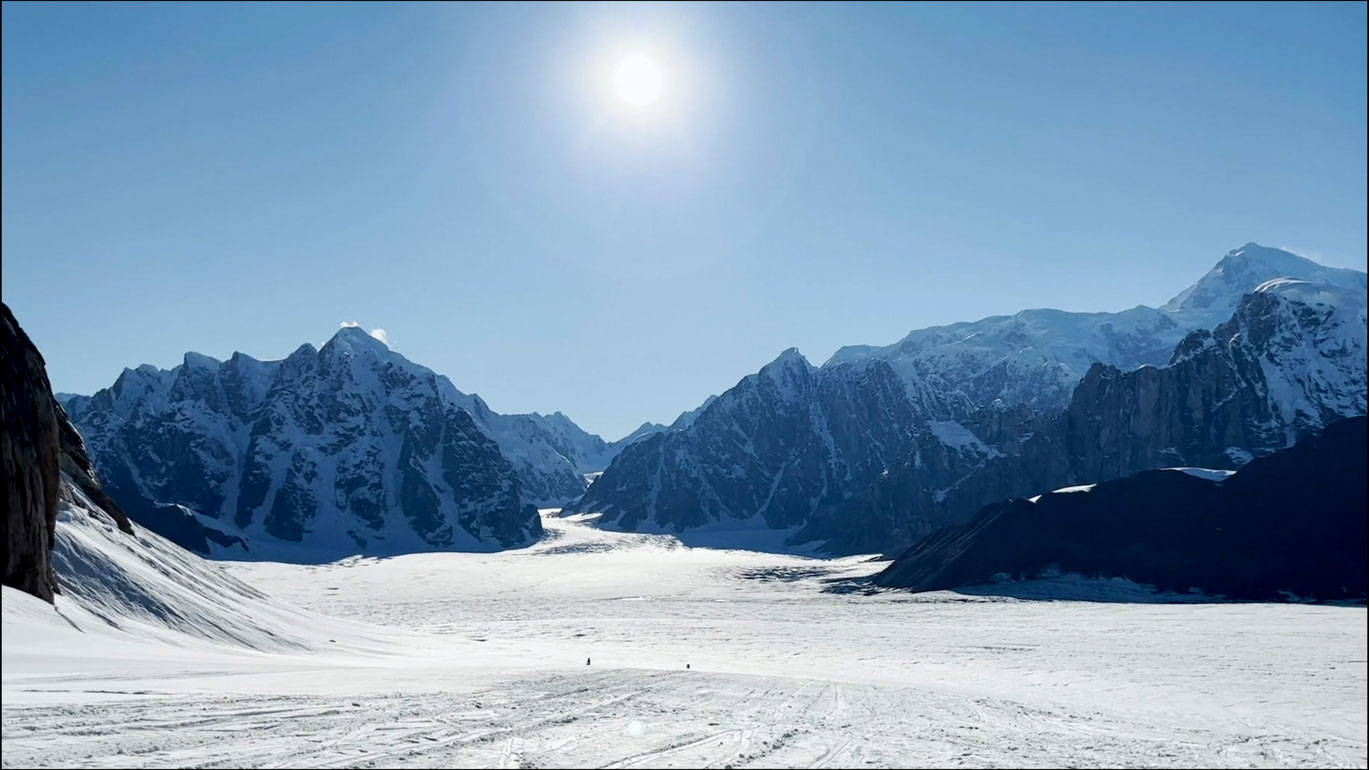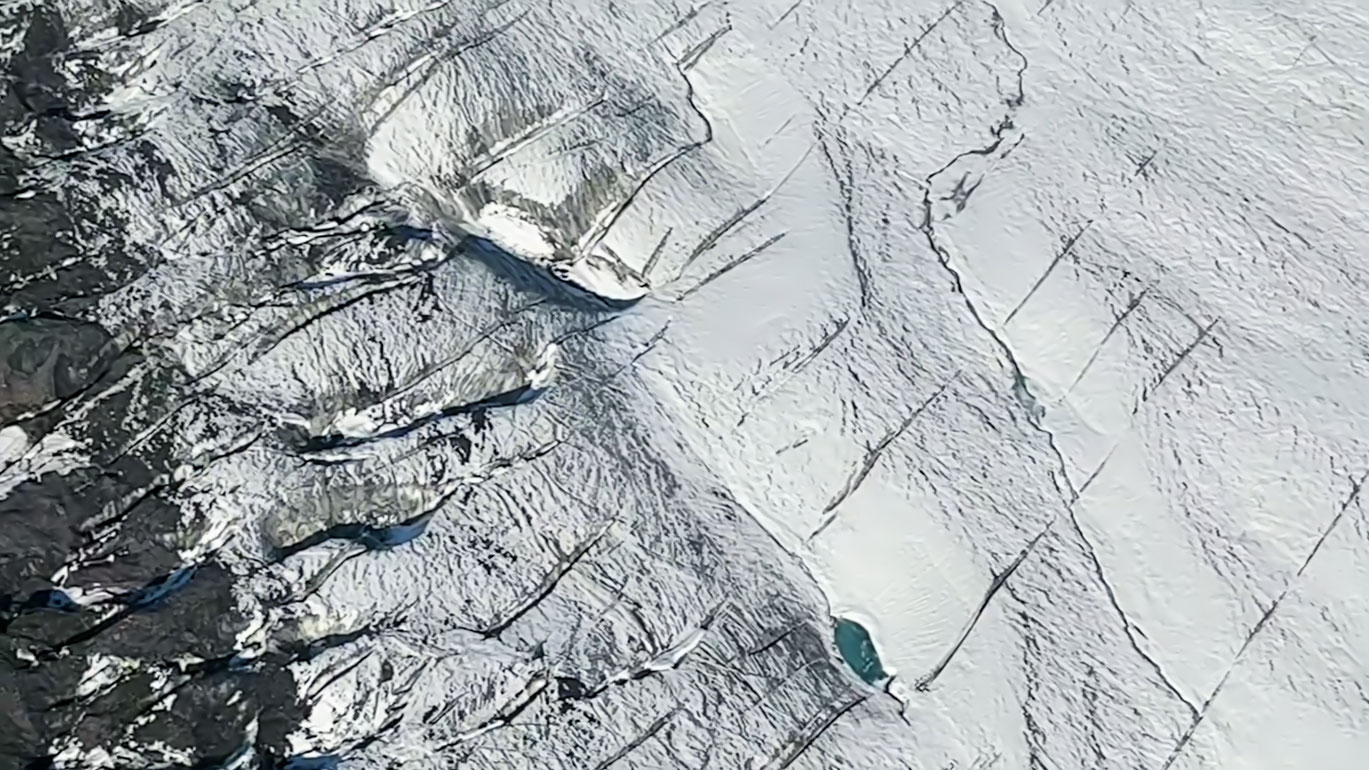The Great Thaw
The Great Thaw is a project about permafrost thaw and how landscape is changed by it. We take a close look at ecosystems like the boreal forest, the tundra and the arctic coastline to document the impacts of the melting permafrost caused by climate change and to present the beauty of permafrost itself. After Antarctic Traces, The Great Thaw is a new part of the Ecological Grief Series which focuses on different aspects of human interaction with nature in the Anthropocene. The series investigates environmental melancholia and the loss of places, species and ecosystems. (directors' note)
What does it mean to represent the visual traces of environmental destruction? How to communicate the temporality of global heating in a time-based medium? These are the questions tackled by Michaela Grill and Karl Lemieux’s experimental documentary exploring permafrost thaw and its effects on diverse ecosystems. The film does not shy away from the gravity of the situation, the title alluding not only to potential futures but equally to a very tangible and disastrous present. Gliding camera movements reminiscent of Grill’s Into the Great White Open reveal the surfaces and contours of Arctic snow-covered landscapes that drift in and out of abstraction, confusing scale and perspective. As we settle into the beauty of the images, it becomes clear that what we are seeing is the great thaw itself, evidenced in the exposed rock faces, the melting ice and the sounds of water that gradually seep through the layers of electronic music. If these opening drone images draw us into a sense of the sublime, the scientific facts presented in a series of intertitles bring us solemnly back down to earth, informing us of the consequences of inaction.
The Great Thaw is ultimately an experiment in documentary filmmaking and a foray into scientific communication. Collaborating with scientific researchers, the filmmakers shift between relaying facts and creating an experience of those facts, allowing the spectator to feel the environmental changes and sense the physical transformations. The interplay of analogue and digital imagery (the media of choice of Lemieux and Grill respectively), combined with the intricately composed soundtrack and the oscillation between abstraction and figuration, opens a space for embodied understandings and the fluid movement of thought. Avoiding the didactic, the film nonetheless wills us to confront reality. As the final intertitle states, quoting from Thomas Halliday’s book Otherlands: A World in the Making, ‘We know that change is occurring, we know that we are responsible, we know what will happen if it continues, we know that we can stop it, and we know how. The question is whether we will try.’ (Kim Knowles)
The Great Thaw
2024
Austria, Canada
45 min
Documentary, Experimental
No Dialogue
english text inserts




